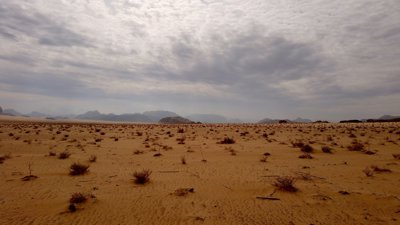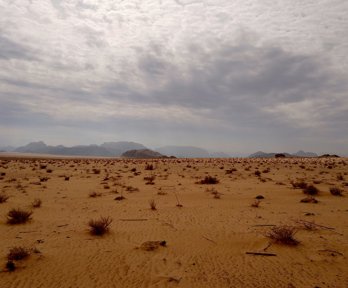Key words
-
Marginal area
-
Qualitative/quantitative research
-
Food security
-
Governance
-
Globalisation
-
Rural to urban migration
Summary
Dr Troy Sternberg’s fieldwork and research has focused on hazards in the Gobi Desert, Asia. Natural hazards in the region include drought, dzud (extreme winters) and other challenging climate conditions which affect livelihoods in the region. At present none of the regions are facing immediate food insecurity, mainly due to government intervention. However, society in the Gobi Desert is changing quickly and this is likely to have future impacts for food security and the environment, both locally and globally.
Research techniques
-
Data collection was carried out in May and June 2012 in three contrasting study locations - Minqin county China, Xilingol Inner Mongolia, China and Omnogov and Dundgov provinces in Mongolia
-
The main research method was qualitative research through extended interviews, discussions and site observations
-
Quantitative research included was climate data produced by the local government in China.
Aims
Troy's research aims to investigate how natural hazards interact with societies and the environment in the Gobi Desert, focusing on:
-
Hazard identification and the evolving climate
-
The impacts on human systems, including food security
-
The impacts on social structures within communities
-
The differences between government intervention in the different regions are studied
Key topics and themes
-
Natural Hazards in dryland and semi-dryland environments
-
Nomadic Pastoralists - Challenges and Changes
-
Food production in dry lands - traditional nomadic methods vs. Modern high tech farming methods
-
The impact of mining and intensive farming and the changes in society this creates - potential future food insecurity issues
-
Differences in government intervention
-
The impact on world food security and world food prices of changing food production in this area of Asia
About the author
Lydia Williams is Head of Geography at JFS, a comprehensive school in north London, and in her tenth year of teaching. Her department aims to challenge and inspire their students through fascinating and topical geography, relevant to London teenagers living in a 21st century globalised world and make fieldwork a key part of their experience of geography. She has taught as part of the LSE Choice Saturday Programme - a Gifted and Talented Geography programme for Year 13 students. She started her life as a geographer growing up in the fantastic coastal environment of Poole, Dorset, followed by a Geography degree at Hertford College, Oxford University and a PGCE at Exeter University
The researcher
Dr. Troy Sternberg is a current researcher at the School of Geography at the University of Oxford. Deserts, nomads and states in transition attracted Troy to Geography. Vast, exquisite perspectives and enduring lives in drylands and steppes from Wyoming to Mongolia became his research interest. He is a member of the Landscape Dynamics research cluster. Troy’s current research focuses on how natural hazards interact with societies and the environment in the Gobi Desert, Asia.


